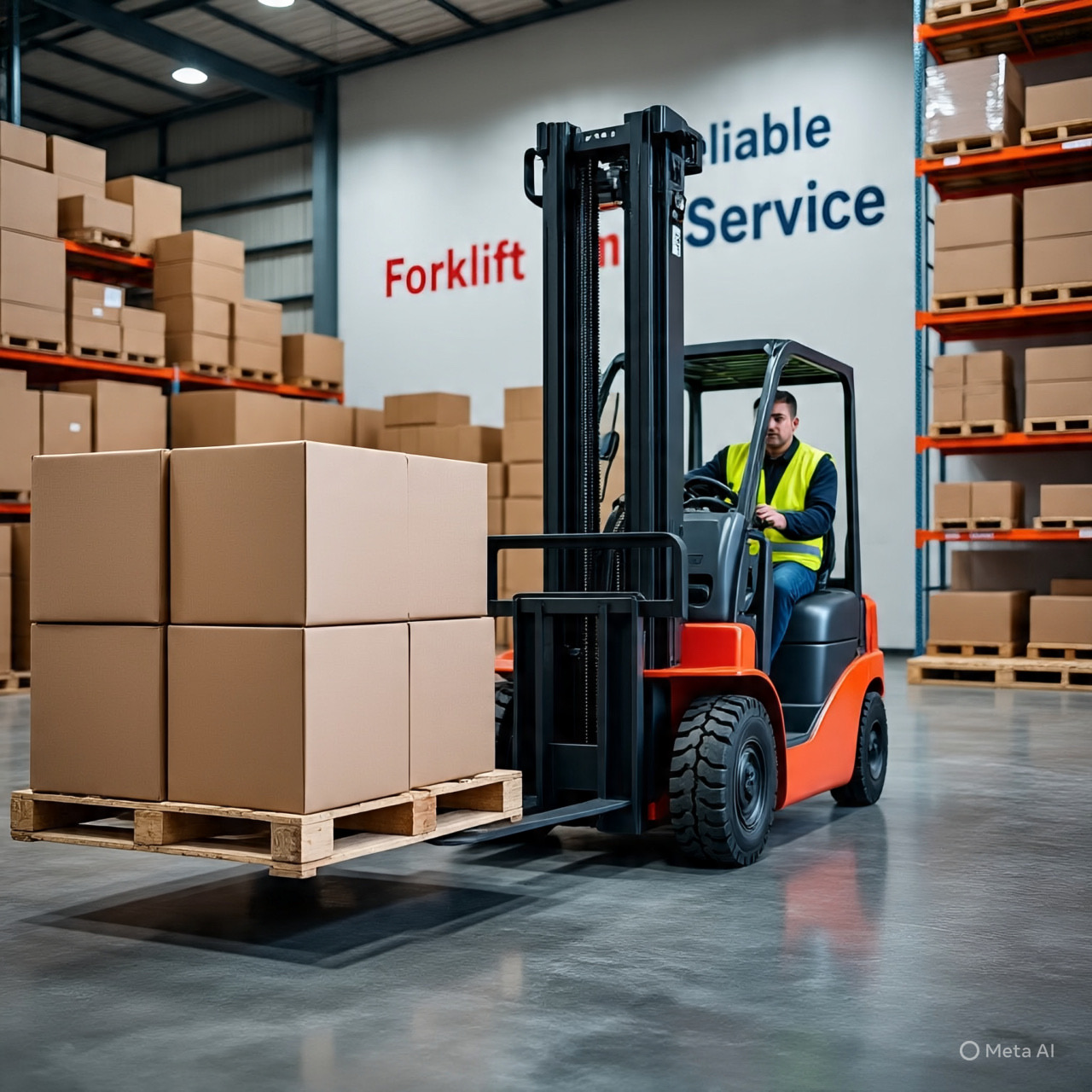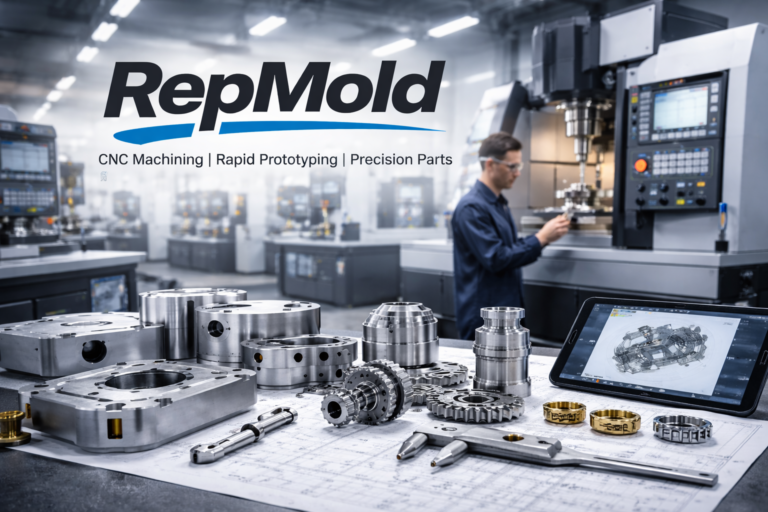Introduction
Forklifts are vital to countless industries—including manufacturing, warehousing, construction, and logistics. They play a crucial role in material handling, helping move heavy loads efficiently, safely, and with minimal manual labor. But as with any machine, ongoing maintenance and support are essential to keep these powerful vehicles operating at peak performance.
This is where forklift service becomes a cornerstone of operational continuity. A well-maintained forklift fleet not only increases productivity but also minimizes downtime, extends equipment life, and reduces long-term costs. Whether your business owns a single forklift or operates a large fleet, having access to professional forklift service is not a luxury—it’s a necessity.
This article explores the components of comprehensive forklift service, the risks of neglecting maintenance, the benefits of preventative care, and how to choose the right service partner.
What Does Forklift Service Include?
Forklift service encompasses a range of activities designed to ensure equipment remains safe, reliable, and compliant with safety standards. These services may include:
1. Preventative Maintenance
Scheduled inspections and tune-ups are crucial to identify wear and tear before it becomes a serious problem. Preventative maintenance may involve:
- Oil and filter changes
- Battery and charging system checks
- Hydraulic system inspection
- Brake, steering, and tire evaluation
- Mast and chain lubrication
- Safety system verification (lights, horn, alarms)
Regular maintenance keeps equipment functioning smoothly and reduces the likelihood of emergency repairs.
2. Repairs and Emergency Support
Even with good maintenance, breakdowns can happen. Forklift service providers offer responsive repair services, including:
- On-site or in-shop diagnostics
- Replacement of worn or damaged parts
- Engine, transmission, and hydraulic repairs
- Electrical troubleshooting
- Welding and structural repairs
Access to timely repairs prevents prolonged equipment downtime and costly work stoppages.
3. Inspection and Compliance
Regulatory bodies often require routine inspections of forklifts to ensure they meet safety standards. A trusted forklift service includes:
- Annual inspections
- Load testing
- Emissions checks
- OSHA compliance documentation
Forklift inspections help ensure the safety of operators and avoid legal penalties.
4. Fleet Management
For businesses with multiple units, comprehensive forklift service may include fleet management programs that:
- Track maintenance schedules
- Provide cost tracking per unit
- Identify underperforming or overused equipment
- Recommend replacement cycles
Fleet optimization ensures a consistent level of performance across all units.
Why Forklift Service Matters
Investing in reliable forklift service isn’t just about keeping your equipment in working order. It’s about improving safety, efficiency, and cost-effectiveness across your operation.
1. Increased Equipment Lifespan
Routine maintenance extends the life of your forklifts by minimizing wear and tear. Small issues, if left unchecked, can escalate into major repairs or early replacements. A forklift that receives regular service is more likely to remain productive over the long haul.
2. Improved Operator Safety
Forklifts carry significant risk if not properly maintained. Faulty brakes, worn tires, or malfunctioning hydraulics can lead to accidents, injuries, or damage to goods. Reliable forklift service ensures these critical systems are functioning properly, reducing liability and protecting your workforce.
3. Reduced Downtime
A broken forklift halts operations and causes delays in production or shipping. Emergency repairs often take longer and cost more than scheduled maintenance. Proactive service minimizes downtime and keeps your workflow moving.
4. Cost Control
Unplanned breakdowns often come with higher costs—not just in parts and labor, but in lost time and missed deadlines. Predictive maintenance and service scheduling can reduce emergency expenses and provide better cost visibility for your operations.
Signs Your Forklift Needs Service
While routine maintenance helps prevent issues, it’s also important to recognize the early signs that a forklift may need attention:
- Unusual noises during operation
- Reduced lifting power or slow mast movement
- Leaking fluids
- Warning lights on the dashboard
- Uneven tire wear or visible damage
- Difficulty starting or idling irregularly
Operators should be trained to report these signs immediately. Delaying service can compromise safety and increase repair costs.
Choosing the Right Forklift Service Provider
Not all service providers are the same. When selecting a partner for your forklift maintenance and repair needs, consider the following:
1. Experience and Reputation
Look for a provider with a strong track record and experience with your specific forklift brands and models. Ask for client testimonials or case studies if available.
2. Mobile Service Capabilities
Mobile repair units can provide on-site service, reducing transportation time and getting your forklift back in operation quickly.
3. Certified Technicians
Qualified, factory-trained technicians are more likely to diagnose problems accurately and perform quality repairs that comply with manufacturer and safety standards.
4. Parts Availability
A provider with a large inventory of parts can offer faster service and reduce equipment downtime.
5. Service Agreements
Consider providers that offer flexible service contracts or maintenance agreements tailored to your needs. These can include regular checkups, inspections, and priority emergency support.
Forklift Service vs. In-House Maintenance
Some businesses attempt to handle forklift maintenance internally. While this may be practical for large organizations with in-house technicians, it often lacks the depth and consistency of a professional service provider.
Pros of Outsourced Forklift Service:
- Access to specialized tools and diagnostics
- Compliance with up-to-date safety standards
- Reduced overhead costs
- Scalable service options
Pros of In-House Maintenance:
- Immediate availability
- Familiarity with specific operations
- Direct labor management
Often, the best solution is a hybrid approach—performing minor daily checks in-house while outsourcing preventative maintenance and complex repairs to professionals.
Best Practices for Forklift Maintenance and Safety
To ensure your equipment performs at its best, integrate these practices into your operation:
- Daily Operator Inspections: Encourage drivers to check forklifts at the start of each shift.
- Maintenance Logs: Keep detailed records of all service, inspections, and repairs.
- Operator Training: Ensure all users are properly trained on both forklift operation and how to identify potential issues.
- Scheduled Service: Work with your provider to establish a regular maintenance schedule based on usage hours.
Conclusion
Forklifts are critical to material handling across many industries—but their efficiency and safety depend heavily on consistent upkeep. Reliable forklift service supports the longevity of your equipment, protects your workforce, and ensures operational uptime.
By investing in preventative maintenance, choosing a knowledgeable service provider, and following best practices, businesses can avoid costly breakdowns, reduce risk, and get the most out of their forklift fleet. Whether you’re managing one forklift or an entire fleet, professional forklift service is essential to keeping your operations running smoothly.







